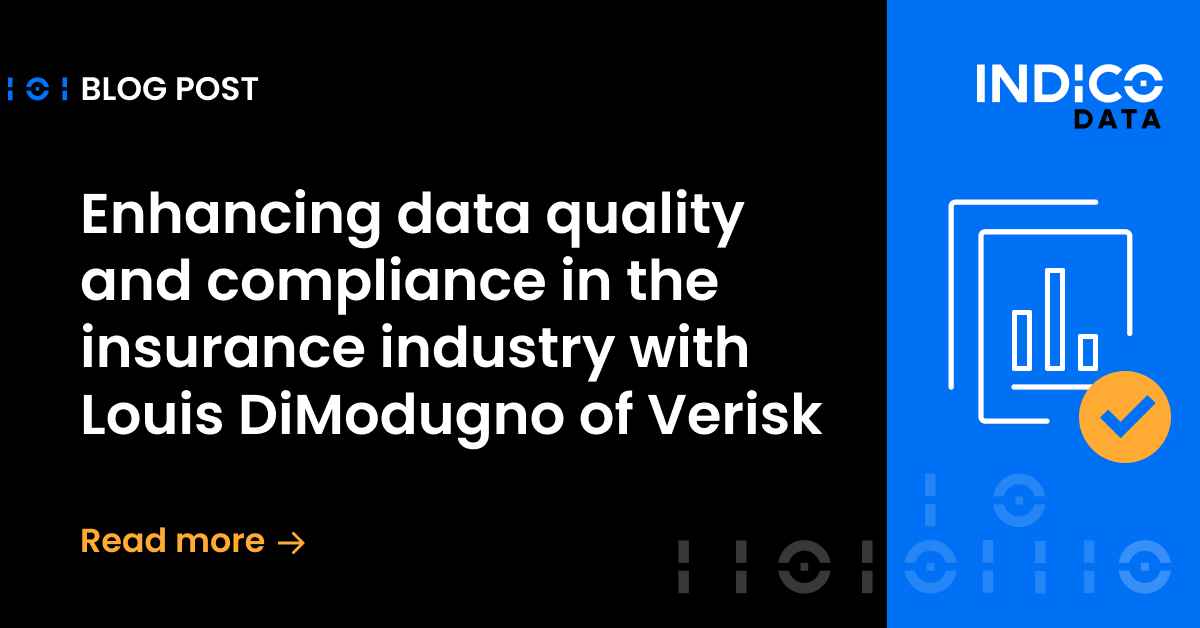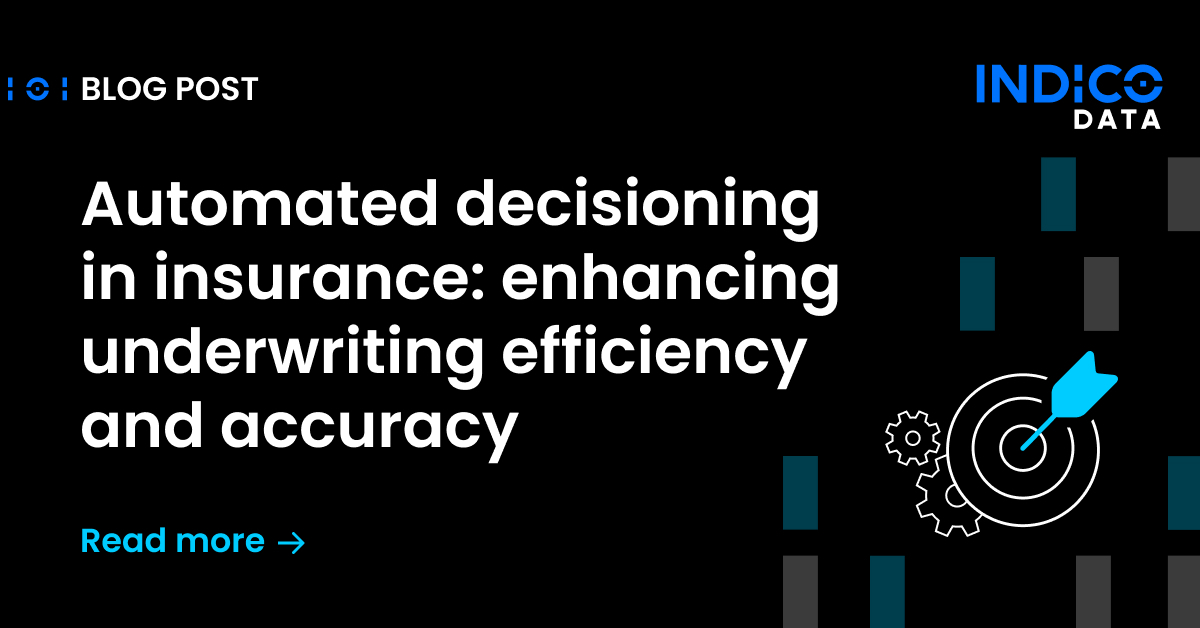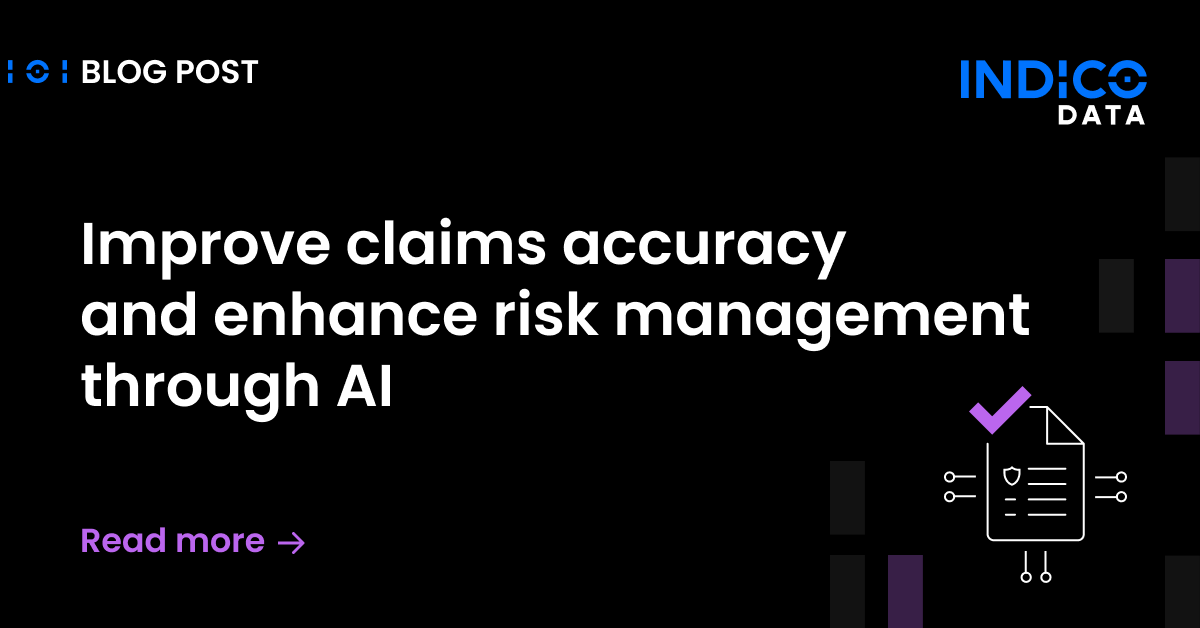Probably you’ve seen some scary numbers about how few artificial intelligence projects actually make it into production and deliver benefits to enterprise organizations. Often the reason for such failures comes down to setting the right expectations, as well as having a detailed plan in place for how to measure results.
Certainly that’s true when it comes to AI technology as it relates to intelligent document processing and unstructured data, as Meno Hellis explained in the inaugural episode of the Indico Data podcast, “Unstructured Unlocked.” The podcast is intended to help automation Center of Excellence professionals and other stakeholders navigate the world of intelligent automation as it applies to unstructured data.
Hellis knows of what he speaks, as he’s a Business Transformation & Data Strategy Consultant who worked for companies including Manulife, The Citco Group of Companies, and IRESS Market Technology. Given his vast industry knowledge, Hellis was a natural choice as my first guest for the podcast and he didn’t disappoint.
As detailed in this previous post, we touched on topics including how automation centers of excellence (COEs) can best work with business units, his Magic-Quadrant-like approach to finding good candidates for intelligent automation projects, and some of the success he’s seen with intelligent document processing projects, including one with a 300% increase in process capacity.
Listen to the full podcast here: Unstructured Unlocked episode 1 with Meno Hellis
Two (more) reasons AI projects fall short
Another topic was why so many AI projects seem to fall short. Data suggests fewer than 10% to 15% of all AI automation initiatives get out of a lab or development environment and into production. While a shortage of AI expertise is certainly one reason, Hellis cited a couple of other explanations.
One is many organizations don’t have space or capacity for experimentation with emerging technologies. “They’ve not set up digital factories or incubation teams that can experiment with what the emerging technologies out there can do,” Hellis said.
Such experimentation is necessary to deal with the other issue: vendors making unfounded claims about their technologies, leaving customers wary.
“I think there’s a lot of skepticism unfortunately,” among enterprises, Hellis said, some of it well-founded. “There’s always going to be a group of people promising that technology will do more than what it currently does. That’s true for everything, not just technology. There are investment advisors who will say your portfolio will be up 15% every year, and that’s not going to be the case.”
Related content: Indico data debuts “Unstructured Unlocked” podcast – expert advice on intelligent automation
Measuring success of intelligent automation projects
To determine the true value of any given technology initiative, companies need to come up with a plan for how to accurately measure it. The emphasis is on “accurately,” as Hellis noted ineffective measurements can only lead to more disenchantment.
“[Robotic process automation] is a great example where I think people have been misled,” he said. Too many organizations simply measure how many bots are actively working, vs. measuring what they’re doing and their utilization rate.
“If you have a bot that’s running an end-of-day process or start-of-day process that just runs one hour at the start or end of the day, that isn’t really an efficient bot,” he said.
Sure, it may sound impressive that you’re running 2,000 bots, but if each is running at 5% or 10% utilization, the return on investment is not likely to be so great, he noted. If you think of RPA bots as digital workers that you’re paying for – because you are – a lightly utilized bot won’t be saving you much vs. using offshore resources.
“You have to have proper governance to make sure that before you’re provisioning any bots you really have an idea how they’re going to be utilized,” Hellis said. That’s especially true for RPA bots which are intended to mimic human functions, which makes them essentially like onboarding another employee, complete with a user account to provision.
I completely agree governance is important when it comes to automation projects. One of the biggest hidden costs of automation platforms is when companies implement a bot (or some other piece of software) intended to do XYZ functions, but nine months later nobody has audited the bot’s performance to ensure it is delivering as intended.
Related content: Johnson Controls unlocks its unstructured data with intelligent document processing
Flexibility is key to automation platform utilization
Utilization is likewise an important issue when it comes to ROI. That’s a big reason many customers choose Indico Data, because our Unstructured Data Platform is flexible enough to use for a whole slew of use cases.
One such customer is the commercial real estate giant Cushman & Wakefield. As a recent case study details, one of the reasons the company chose us was “the Indico platform applies to numerous use cases and document types to expand across business units.” (Fun fact: the Cushman & Wakefield exec you’ll see quoted in that case study, Brandi Corbello, now works for Indico Data. Like me, she was so impressed she switched from being an Indico Data customer to an employee.)
Related content: Cushman & Wakefield saves 35,000 staff hours
So, if you’ve been burned or, as Hellis put it, “misled” by RPA or other automation technologies, take a fresh look at what an intelligent automation platform like Indico Data’s can do.
“The hard fact is machine learning, natural language processing, AI, all these technologies have a lot to deliver if used correctly,” he said. “Used wisely they can actually transform the business.”
Check out the full Unstructured Unlocked podcast on your favorite platform, including:
Read the full transcript of the podcast here.


